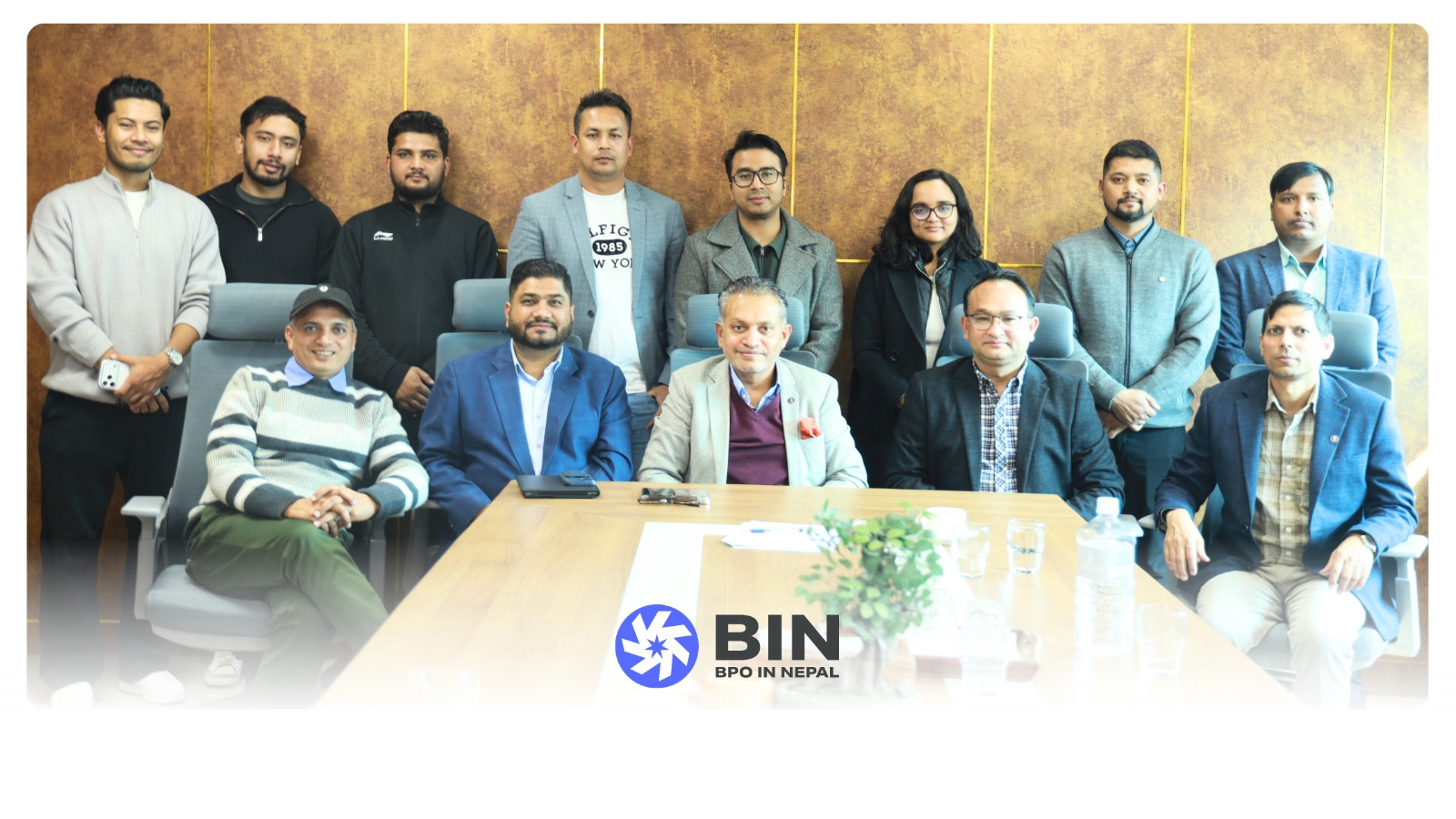Top Legal Tasks You Can Outsource (and Save Time)

By Samunnati Shrestha, Creative Lead at BIN
Category Legal Process Outsourcing (LPO)
Published June 26 2025
In today’s fast-paced legal sector, law firms and corporate legal departments are under increasing pressure to deliver faster, smarter, and more cost-effective services. Many legal professionals find themselves inundated with repetitive tasks that consume bandwidth and divert attention from high-level strategic work. Legal process outsourcing has emerged as a powerful solution that frees up internal resources and boosts overall efficiency. In this blog, we explore the most impactful legal tasks you can outsource to save time, reduce costs, and scale your operations with quality, compliance, and seamless integration always front of mind.
Legal Research and Writing
Legal research is the cornerstone of informed decision-making, precedent setting, and persuasive argumentation. Partnering with an experienced outsourcing provider lets lawyers offload extensive analysis of statutes, regulations, case law, and secondary sources. Highly capable research teams in low-cost regions can analyze complex legal issues and draft detailed memos, briefs, and citations ready for attorney review. While internal associates focus on core strategy, outsourced experts compile factual summaries, prepare legal opinions, and produce persuasive writing informed by jurisdiction-specific nuances. This collaboration accelerates turnaround and raises the capacity for complex caseloads.
Document Review and E-discovery
Litigation, investigations, and compliance initiatives frequently require reviewing thousands of documents, emails, and digital records to identify relevant or privileged material. Outsourcing document review helps reduce costs and streamline discovery timelines. Trained analysts apply search criteria, tag and code files, flag sensitive content, and support litigation readiness workflows. They work within secure platforms under supervision, escalating anomalies for attorney input. This model harmonizes speed and accuracy.
Legal professionals receive clean, annotated datasets rather than wading through unfiltered volumes, enabling them to focus on high-value review and strategy.
Contract Drafting, Review, and Management
Contracts form the backbone of most business engagements yet are time-consuming to draft, review, negotiate, and track. By outsourcing contract management, legal teams get structured support at scale. Specialists develop standard templates, populate clauses, verify compliance with internal policies, and redline third-party drafts. Routine contracts such as NDAs, vendor agreements, employment contracts, and lease arrangements can be systematically processed with minimal attorney intervention.
Outsourced teams can also track key dates like renewals, terminations, and amendments, ensuring business continuity and risk mitigation. Firm staff remain focused on strategic or bespoke negotiations while the rest is managed efficiently.
Regulatory Compliance and Monitoring
Businesses operating across jurisdictions face evolving regulations in finance, healthcare, privacy, trade, and anti-corruption. Staying compliant and demonstrating transparency is critical but labor-intensive. Outsourced teams can monitor regulatory changes, prepare compliance summaries, maintain checklists, and update internal guidance.
Whether alerting on GDPR updates, FDA notifications, SEC rules, or AML standards, these teams serve as an early warning system. They can also assist with vendor due diligence, cross-border assessments, and remediation tracking.
This ensures legal teams are informed and proactive while reducing time spent on manual oversight and memos.
Intellectual Property Support
Protecting and enforcing patents, trademarks, and copyrights requires significant research, administrative filings, and monitoring. Outsourcing supports these processes through first-pass patent searches, trademark clearance reviews, application drafting, and renewal tracking. IP experts prepare prosecution responses, office action drafts, and international filing prep.
Additionally, outsourced teams can handle trademark watch services, infringement monitoring, and preliminary cease-and-desist drafting. By delegating these administrative and repetitive tasks, IP attorneys can spend more time on strategic counseling, portfolio building, and litigation planning.
Immigration and Visa Services
Corporate immigration compliance and visa processing involve complex documents, tight deadlines, and jurisdictional variation. Outsourcing immigration services streamlines these workflows by handling preparatory paperwork, validating supporting documentation, completing government forms, and tracking application progress. Experienced immigration specialists help complete forms for work permits, investor visas, skilled worker applications, and sponsorship filings. Companies benefit from quicker processing times, reduced administrative overhead, and improved compliance, while internal counsel focuses on policy and strategy.
Litigation Support and Trial Preparation
Beyond document review, litigation teams often need assistance with assembling exhibits, preparing witness binders, drafting affidavits, organizing deposition transcripts, and building timelines. Outsourced litigation support services can compile and annotate evidence, create demonstrative graphics, manage electronic trial binders, and coordinate logistics. By leveraging these resources, legal teams reduce last-minute pressure and improve trial readiness while allowing senior attorneys to tailor case strategy and courtroom presentation with confidence.
Data Privacy Compliance
With global data protection frameworks like GDPR, CCPA, and India’s PDPB, legal teams are handling an unprecedented flow of privacy inquiries, incident reports, vendor assessments, and policy updates. Outsourced privacy experts can review data processing agreements, analyze vendor risk, draft privacy documentation, and prepare data inventory reports. They also support incident response protocols and data subject access requests.
Teams can rely on outsourced partners for ongoing compliance while internal lawyers focus on negotiations, regulatory engagement, and strategy.
Corporate Governance and Entity Management
Governance tasks such as preparing board minutes, maintaining corporate books, organizing shareholder resolutions, and filing annual statements can all be managed by outsourced teams. They maintain filing calendars, coordinate with company secretaries, update registers, and ensure compliance with jurisdiction-specific requirements. This frees up corporate counsel to support high-growth initiatives, mergers, and policy development with the assurance that routine administration is managed in a timely, compliant manner.
Legal Translation and Transcription
Cross-border deals, multilingual litigation, and international corporate matters often require precise translation of contracts, affidavits, pleadings, and evidence. Outsourced providers offer specialized legal translation services, ensuring linguistic accuracy and preserving legal context. Additionally, transcription services can convert audio or video depositions, hearings, and interviews into searchable text. Lawyers receive review-quality transcripts and translations promptly so they can analyze content without delay.
Due Diligence and M&A Support
Mergers and acquisitions depend on comprehensive due diligence across financial, legal, regulatory, IP, and employment matters. Outsourced teams review corporate records, contracts, licenses, litigation history, environmental compliance documents, intellectual property filings, and benefits/admin documentation.
They assemble due diligence reports and flag material issues for internal counsel review. This ensures robust assessment while allowing legal teams to concentrate on deal structuring, negotiation, and strategic advisory.
Training Material and Template Development
Compliance protocols, internal training, and policy implementation often require custom documents such as training modules, presentation slides, standard operating procedures, and employee handbooks. Outsourced teams can draft, format, and update these materials to reflect evolving legal requirements and internal policies. With this support, legal teams can focus on content validation and employee engagement rather than repetitive drafting and formatting.
Regulatory Reporting and Filings
Firms and corporate departments often need to prepare disclosures, periodic filings, audit documentation, and transactional reports. Outsourced teams specialize in preparing forms, completing questionnaires, uploading documents, and managing submission deadlines. Whether it’s SEC filings, competition authority notifications, import-export documentation, or environmental compliance forms, outsourcing enables accurate, on-time submissions while freeing in-house teams for higher-level review and strategic dialogue.
Legal Project Management
Large-scale legal engagements such as multi-jurisdiction litigation, cross-border deals, or enterprise-wide compliance programs benefit from structured project management. Outsourced project managers can handle task mapping, milestone tracking, vendor coordination, budget monitoring, and status reporting. This ensures smooth execution and transparent communication. Internal counsel gain peace of mind knowing those administrative details are monitored, allowing them to manage client relationships and legal strategy.
Knowledge Management and Legal Archives
Law firms and departments generate vast quantities of legal documents over time. Managing version control, archival access, citations, and searchability supports both current practice and future precedent.
Outsourced knowledge management teams can tag documents, index files, create taxonomies, and maintain internal repositories. By providing clean, organized access to historical materials, legal staff can leverage internal precedents instead of reinventing the wheel.
Compliance Audit Support
Audits demand data gathering, evidence compilation, interview coordination, risk analysis, and follow-up tracking. Outsourced audit support teams can collect required documents, draft internal questionnaires, compile responses, and manage compliance workflow. They serve as coordination hubs for audit preparation, allowing legal teams to supervise findings and lead stakeholder management rather than spend time chasing documents.
Jurisdictional Registration Services
Global expansion requires businesses to register local branches, subsidiaries, trademarks, or domain names. Outsourced teams can coordinate with local authorities, complete registration forms, prepare required documentation, and track application progress. By operating through a compliance partner in another jurisdiction, firms bypass administrative delays and focus on strategic launch coordination.
Summaries and Legal Briefing
Extensive case law, legislative updates, regulatory alerts, and scholarly commentary can overwhelm legal teams. Outsourced briefing specialists monitor developments in designated fields such as tax, labor, IP, antitrust and distill updates into concise summaries or flash notes. This keeps lawyers informed without requiring daily research, freeing them to apply insights strategically rather than compile them.
Billing Support and Timekeeping
Law firm profitability depends on accurate billing, time capture, and invoicing. Outsourced billing support teams track time entries, organize client-ledger data, review billing narratives for accuracy, prepare invoice drafts, and coordinate with accounting systems. This removes administrative burdens from attorneys and reduces disputes or write-offs by ensuring cleaner billing protocols.
Transnational Regulatory Submissions
When engaging with regulators across regimes such as the FDA in the U.S., EMA in Europe, or ABC in Asia legal teams manage jurisdiction-specific submissions, translations, consolidated proofs, and binding declarations. Outsourced regulatory service teams handle localized language adaptation and procedural conformity. By doing so, internal legal teams can review and approve the material rather than manage procedural complexities.
Embracing Outsourcing with Confidence
Each of the tasks outlined above offers law firms and corporate legal departments the chance to reclaim time and resources. By carefully selecting the right outsourcing partners and establishing clear service standards, firms can delegate low-value but necessary work effectively. This delegation elevates internal practitioners to higher-impact work, enhances client responsiveness, and supports scalable growth. With intelligent oversight and modular governance, outsourcing becomes far more than cost reduction. It empowers legal organizations to operate faster, smarter, and with greater agility in a competitive landscape.
In 2025, firms are no longer asking whether to outsource but how to do it strategically. Prioritizing task selection, building data security into every engagement, aligning on quality metrics, and integrating outsourced teams into internal workflows unlock transformative productivity. BIN offers tailored legal outsourcing models that align skilled professionals and modern processes with the unique needs of law firms and in-house teams. Every engagement begins with your goals and leads to a seamless scaling strategy that drives performance and growth.
If your firm wants to challenge the old ways and deliver better results with less busywork, then outsourcing legal tasks is the logical next step. The time saved, clarity gained, and margins recovered are just the beginning.





